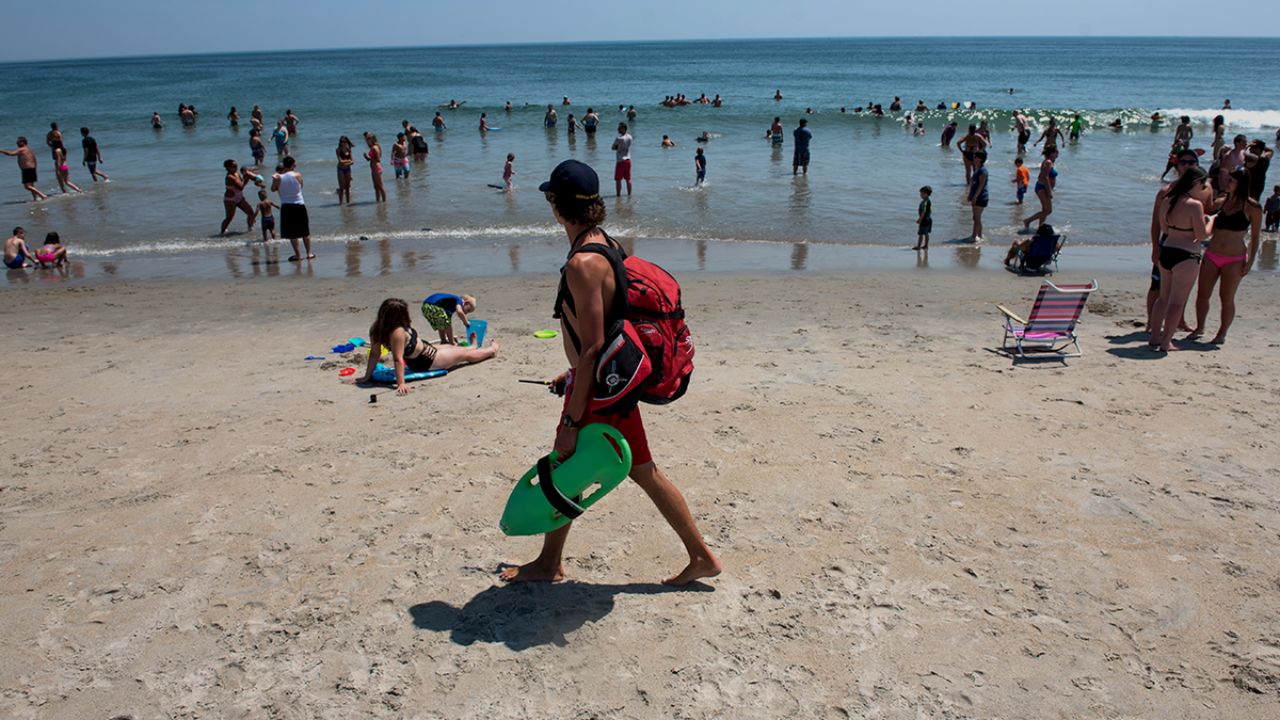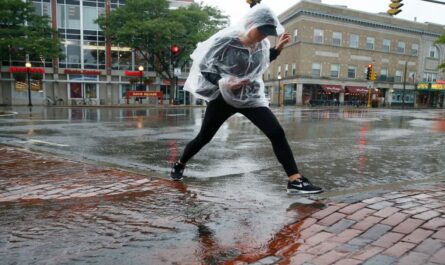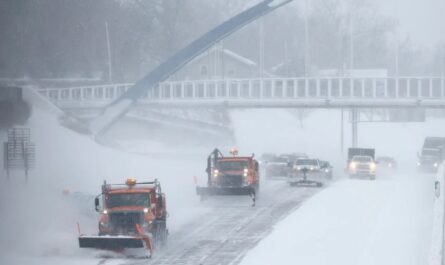Hampton Beach, New Hampshire – A 17-year-old teenager tragically drowned on Sunday evening while swimming with his family at the popular Hampton Beach, authorities confirmed. The teen was swept away by a powerful ocean current, and despite immediate efforts to rescue him, he later succumbed to the dangerous waters.
The Incident
New Hampshire State Police Marine Patrol reported receiving an emergency call around 6:45 p.m. regarding a possible drowning. Witnesses said the teen had been swimming with family members when strong currents carried him away from shore.
The teen’s 61-year-old father entered the water in a desperate attempt to save his son but also became distressed in the powerful currents. Lifeguards, who were initially off-duty, were called back to assist. Both father and son were brought safely to shore, and lifesaving measures were immediately performed.
The father was transported to a local hospital and is currently in stable condition, while the teen was later pronounced dead. Authorities have not released the teen’s name.
Hazardous Water Conditions
New Hampshire State Beach Patrol Chief Patrick Murphy noted that the tragedy occurred during a period of particularly dangerous water conditions at Hampton Beach. Red flags remain posted to indicate restricted swimming, with advisories limiting wading to waist-deep waters only.
Murphy emphasized the importance of swimming only when lifeguards are on duty and staying within supervised beach areas.
“The public is asked to swim only when lifeguards are on duty and at the beaches that have coverage,” he said.
Recent Rescue Activity
The incident follows an unusually high number of rescues at Hampton Beach. Over 140 people were rescued in one week due to rip currents fueled by Tropical Depression Dexter. Normally, lifeguards see 40 to 60 rescues per day, making last week’s numbers exceptionally high.
“A lot of the sand in those flash rip currents really kicked out, especially around high tide, which we normally don’t see here,” Murphy said.
The rough conditions were worsened by the lingering effects of Hurricane Erin and Tropical Storm Dexter, creating hazardous rip currents and turbulent ocean conditions.
Read Also: Freak Hot Tub Accident Nearly Kills Two Elderly Women at Remote Kentucky Cabin
Understanding Rip Currents
According to the United States Lifesaving Association, rip currents are a significant hazard, causing over 100 deaths annually in the U.S., while tens of thousands are rescued each year. Lifeguards emphasized that remaining calm and swimming parallel to shore is crucial for survival if caught in a rip current.
Murphy advised:
- Do not fight directly against the current; swimming straight to shore can exhaust even strong swimmers.
- Swim parallel to the shoreline until free from the current’s pull, then make your way back safely.
- Always stay alert to posted flags and warnings, and avoid entering dangerous waters when storms or depressions affect ocean conditions.
Authorities Continue Investigation
New Hampshire State Police Marine Patrol continues to investigate the circumstances surrounding the drowning. Sgt. Nicholas Haroutunian is requesting anyone with information to contact him at [email protected] or call (603) 227-2112.
Officials urge the public to remain vigilant at beaches during high-risk periods, particularly following storms or tropical depressions that may produce strong, unpredictable currents.
Key Takeaways for Beachgoers
- Always swim at beaches with lifeguards on duty.
- Pay attention to red flags or other posted warnings indicating unsafe swimming conditions.
- Stay calm if caught in a rip current and swim parallel to shore rather than against the current.
- Monitor local weather and ocean conditions before entering the water, especially after storms.
Hampton Beach’s tragedy serves as a reminder that rip currents are a serious threat, even at popular tourist destinations. Families and visitors are encouraged to exercise caution, adhere to beach advisories, and prioritize safety when swimming in the ocean.
Have you experienced hazardous water conditions at Hampton Beach or other New Hampshire beaches? Share your stories and safety tips in the comments at ibwhsmag.com.


 by
by 

